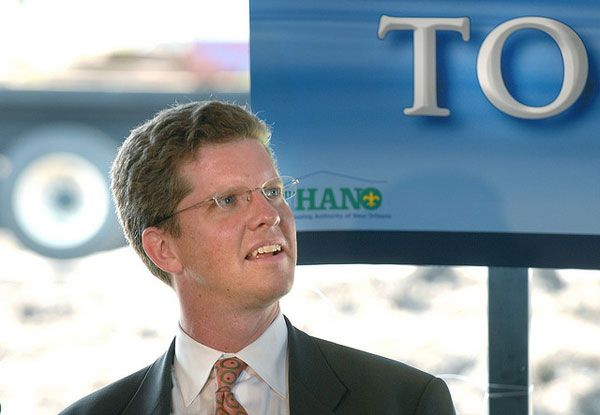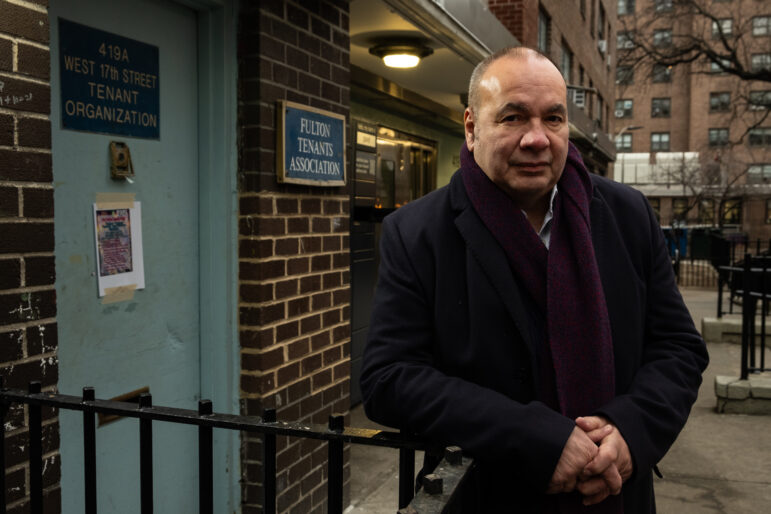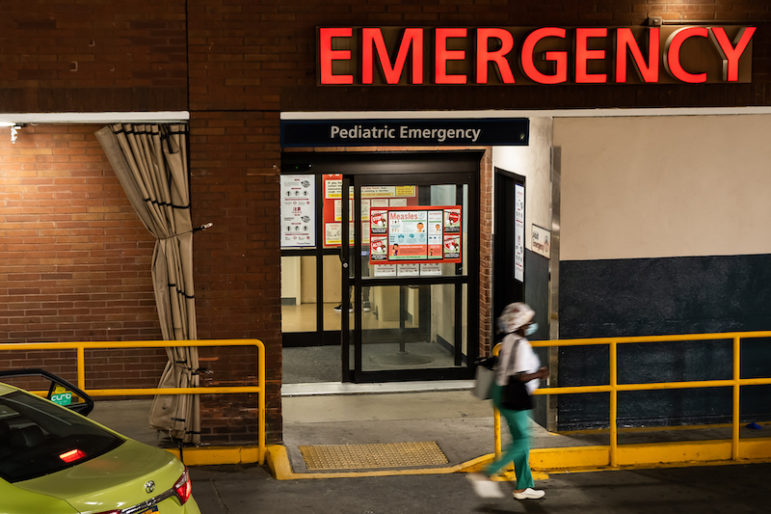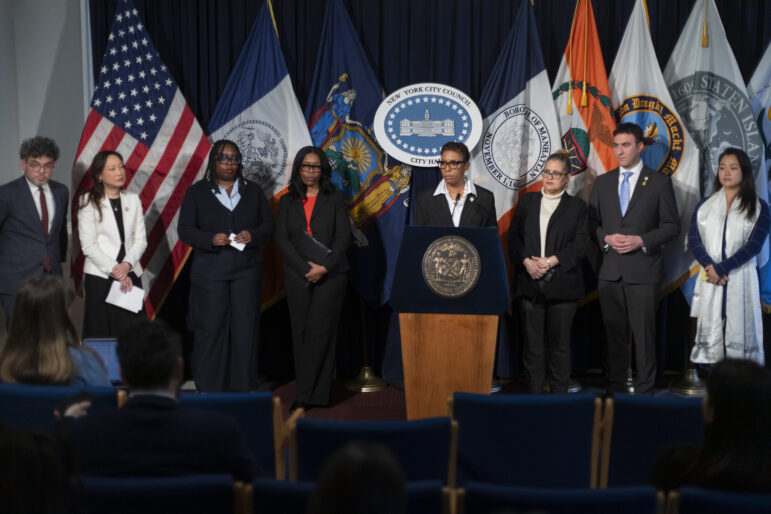
Photo by: courtesy of HUD OPA
Housing and Urban Development Secretary Shaun Donovan in New Orleans at a public housing ground breaking.
Public housing advocates aiming to influence the direction of a seismic policy shift HUD proposed in May say they see some signs that the department is receptive to their recommendations and hope they still have a chance to prevent some of the policy’s potential outcomes. Late last month, when a delegation of about 17 activists from National People’s Action met with HUD Secretary Shaun Donovan and two other HUD representatives to discuss the new policy, Donovan said no to some ideas, but invited them to elaborate on two of their counterproposals.
DeAngelo Bester — one of the event’s organizers and the Housing Justice Campaign Director for NPA, a national coalition of social, racial and economic justice advocates headquartered in Chicago — said cooperating was in HUD’s best interest. “They don’t have support from housing authorities,” he said. “They don’t have support from residents. They don’t have support from key members of Congress. They need us more than we need them.”
One of the eight or so New York activists who attended the meeting said she didn’t want to antagonize HUD by mentioning resistance to the policy, know as Preservation, Enhancement and Transition of Rental Assistance Act (PETRA). “I wouldn’t quite say that they have no choice,” said Damaris Reyes, a public housing resident and the executive director of Good Old Lower East Side, a neighborhood housing and preservation organization. “I think they know if they want to see this bill passed, they gotta work with folks.”
A HUD spokesperson confirmed that Secretary Donovan asked NPA to elaborate on their proposals in writing. “We’ve requested their suggestions in writing so that we can be clear on the language proposed and what is or isn’t already covered in the bill,” said Tiffany Thomas Smith, HUD’s deputy press secretary. But, Thomas Smith said, NPA’s claim that PETRA is unpopular is false. “In these listening sessions, we’ve heard broad support not only for the principles captured in PETRA but also for the need for an innovative, comprehensive strategy to preserve affordable housing,” she said.
In May, Donovan announced the proposal by telling the House of Representatives Financial Services Committee that his agency plans to intensify its longstanding efforts to increase the social and physical mobility of public housing residents and turn existing public housing developments into mixed income communities with market rate tenants.
The plan, outlined in a bill called Preservation, Enhancement and Transition of Rental Assistance Act, also aims to attract private investment to those existing public housing developments. Such investment would help pay for costly, long-delayed repairs, which the agency projects total $20 billion. Public housing that receives such investment would remain under the control of the local housing authority for 30 years.
John Rhea, chairman of the New York City Housing Authority (NYCHA) testified at HUD’s May hearing that he welcomes the initiative. The National Low Income Housing Coalition (NLIHC) issued a statement in May expressing support for it too. NLIHC President Sheila Crowley Crowley said in that statement that the proposal wasn’t perfect, but would provide a framework for addressing important challenges facing public housing.
NPA activists say they also recognize that public housing in its current form is not sustainable and must change. But at last month’s meeting with Donovan, they said they were worried that allowing the private sector to invest in public housing could lead banks and other lenders to foreclose on and privatize public housing. To avoid that, they recommended that HUD add to PETRA a requirement that the FHA guarantee any mortgages procured by public housing authorities. The activists also want PETRA to prohibit private investors and lenders from investing or loaning more than 49% of the post-rehabilitation value of the publicly-owned property used as the collateral or as the underlying asset for the loan or investment.
Donovan told the activists that he believes PETRA does an adequate job of preventing the privatization of public housing, but said he is open to the idea of using something like the FHA to strengthen that prevention. Donovan said that many public housing buildings wouldn’t qualify for an FHA guarantee, but asked the activists to flesh out their proposal, with provisions that would enable HUD to adopt it internally, thereby avoiding the gridlock associated with seeking Congressional approval.
Donovan was also receptive to the activists’ recommendation that HUD alter PETRA to strengthen the right of public housing residents to organize themselves into tenant associations. The activists asked him to add to the bill a guarantee of funding for all official tenant associations. Donovan said he liked the idea but feared that such a provision would subsidize dubious tenant associations, those that are too heavily influenced by housing authorities. He agreed to work with NPA to develop criteria to identify and fund legitimate tenant associations.
Donovan also rejected some NPA recommendations at last month’s meeting, including:
Eileen Markey contributed to this report.







